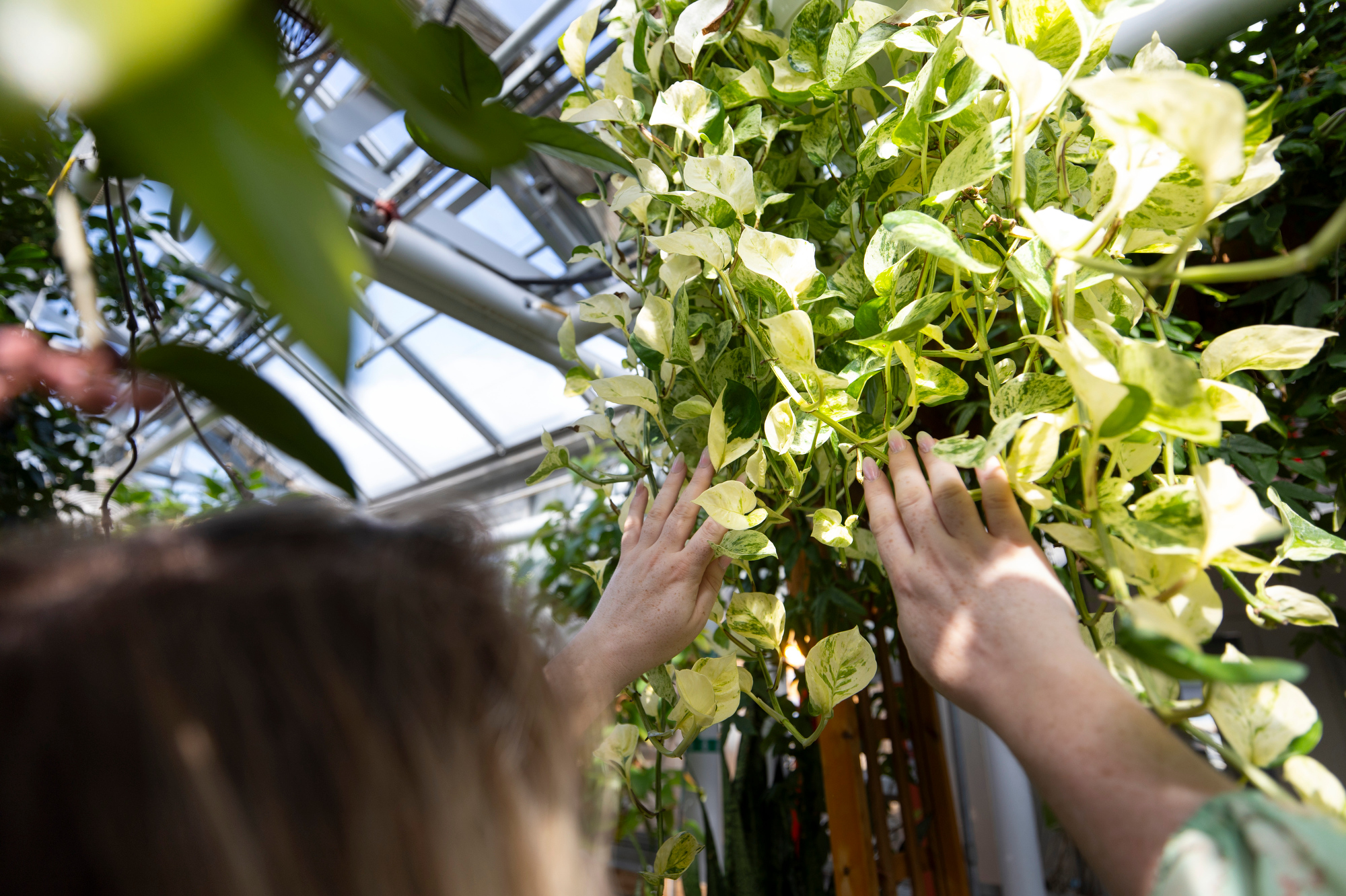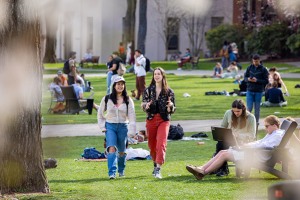Since arriving at Brown, LePage has focused on courses related to conservation, natural systems, traditional ecological knowledge and environmental storytelling — all topics she’s been interested in since she was young.
“While I was growing up, my mom was a community herbalist, and although she didn’t have a college degree, the knowledge she shared influenced me to be passionate about the environment,” LePage said. “We moved around a lot, but we always had plants, and we did things like go foraging in the woods. It took a while to figure out, but I finally realized that I could take that interest and turn it into a career path.”
The power of plants
LePage is passionate about advocacy and community engagement, which she has combined with her academic interests. In 2023, with funding from a Royce Fellowship from Brown’s Swearer Center, she began an “empowered recovery” horticulture project with Sojourner House, which provides advocacy, housing and education for survivors of domestic violence, sexual assault and human trafficking.
She began by researching trauma-informed care and peer support, and volunteering at Sojourner House to learn more about its clients and mission. Last spring, she led 10 horticulture therapy workshops for the nonprofit, and she is now overseeing the creation of a pollinator garden at its drop-in center on Westminster Street in Providence. LePage’s sorority, Alpha Chi Omega, which supports domestic violence prevention efforts and has a longstanding relationship with Sojourner House, has agreed to permanently maintain the garden, she said.

“It’s been so nice being able to contribute to Sojourner House on multiple different levels,” said LePage, who has also helped with fundraising and outreach. “As a survivor of domestic violence and sexual assault, that work is meaningful and truly an integral part of who I am.”
LePage developed workshops that blend botany and self-care — on topics like the therapeutic properties of herbs and how to propagate plants — with support from her adviser, Rebecca Kartzinel, director of Brown’s Herbarium, as well as Brown’s Research Greenhouse Manager Nicholas Vasques and Greenhouse Technician Sherry Warner, who donated plants for several workshops.
“Without them, this project could not have happened,” LePage said.
Justine Mainville Pagano, volunteer manager at Sojourner House, said LePage’s dedication has made a lasting impact: “Corinne has a great way of connecting with people and bringing different contexts together.”
The workshops have been so successful that the organization is exploring ways to incorporate horticulture into its regular programming.
“We know from cultures around the world that having our hands in the dirt and spending time in nature is good for our state of mind and mental well-being,” Mainville Pagano said. “This work gives our clients an opportunity to slow down, enjoy some quiet moments and take care of other things, as well as themselves.”
On Brown’s campus, LePage serves as a facilitator for Sexual Assault Prevention Education, a wellness program that provides on-campus workshops and training.
“I feel like I’m the best version of myself when I’m helping others,” she said. “Doing things that positively impact the community has helped me cope with my own challenges.”
Another initiative that’s important to her is the Nontraditional Student Advisory Board at Brown, which LePage started with support from Avery Danage, Brown’s transfer and Resumed Undergraduate Education Program adviser, to advocate for equitable opportunities for students who are 24 and older.
“This is a vulnerable population because there can be some barriers for older students studying at any university,” LePage said.
She plans to pursue graduate studies after she earns her degree in 2027 and hopes to work for an organization focused on environmental conservation. In 2025 and 2026, she’ll delve into hands-on work when she studies abroad, first in Bhutan and then in Patagonia, Chile — dream destinations for an environmental sciences concentrator, she said.
LePage recently learned that she is a recipient of a 2024 Obama-Chesky Voyager Scholarship for Public Service, a two-year leadership development and scholarship program that provides financial aid, an immersive work-travel experience, and a network of leaders and mentors. As part of the program, she will be traveling to a yet-to-be-selected international destination to work on a self-designed project focused on addressing human-wildlife conflict and its effects in communities.
“This ties into my passion for advocacy and will allow me to prepare for a future career in the environmental sector,” she said.
As she looks ahead, LePage is determined to embrace one of her most important lessons: push aside the moments of doubt.
“Am I too old? That was always a question,” she said. “But I’ve learned to accept myself and what it took to get me here. My journey is unique, and I’m proud of that.”
